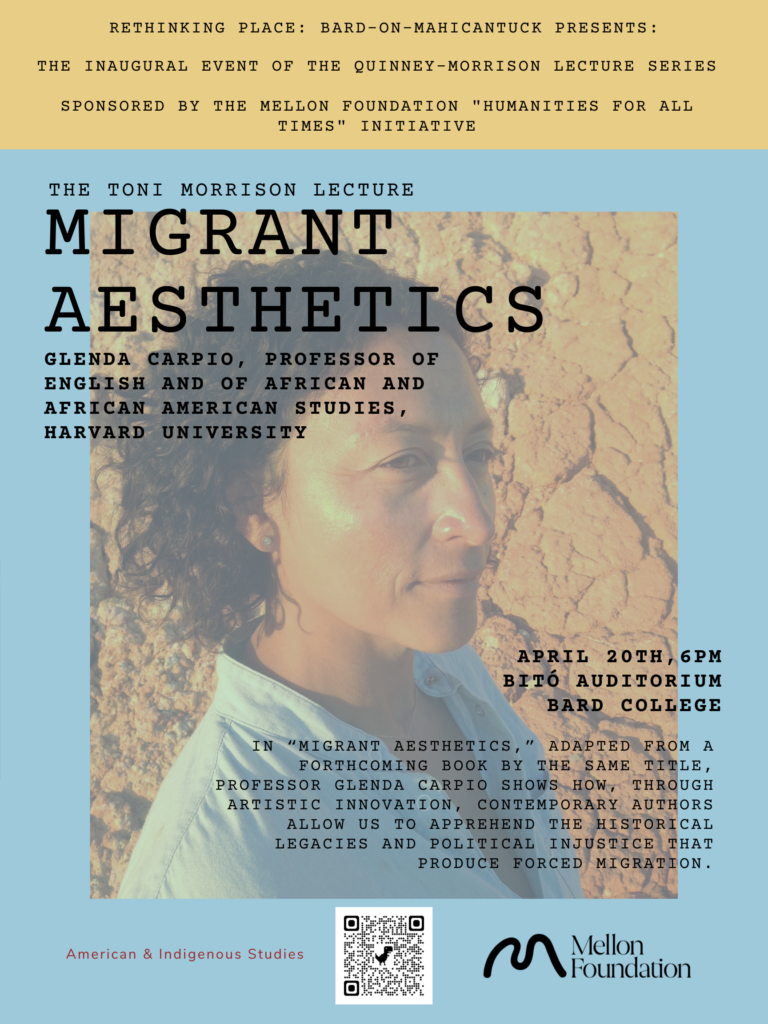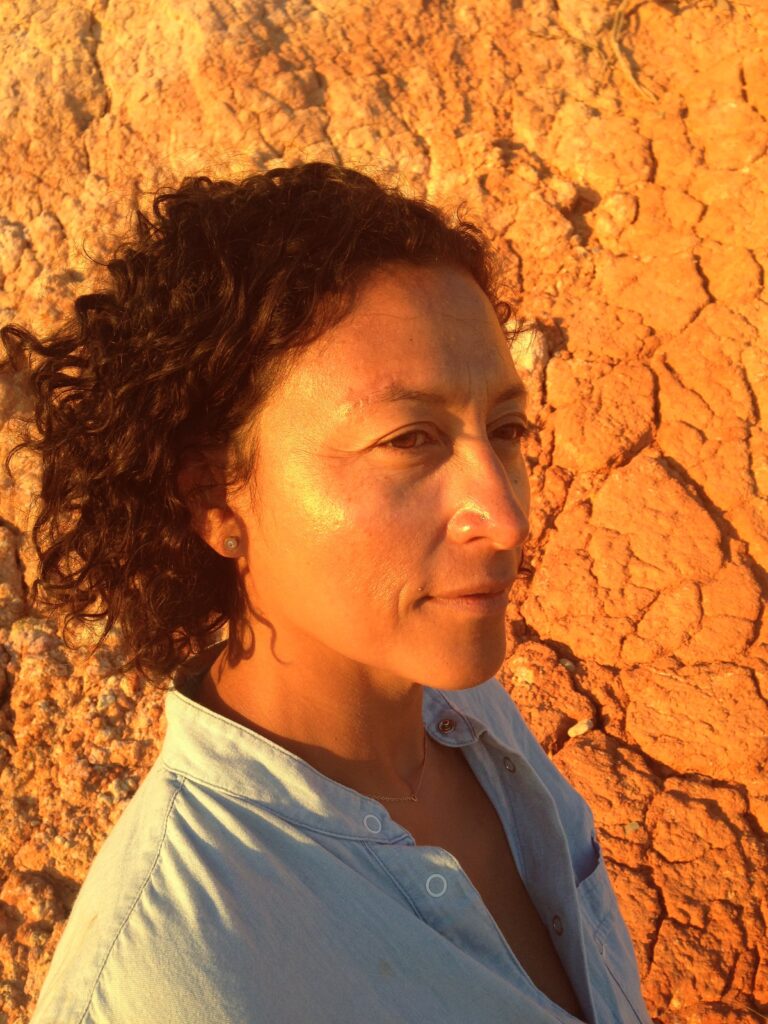Supported by the Mellon Foundation “Humanities for All Times” initiative.
Migrant Aesthetics
Professor Glenda Carpio
Bito Auditorium, Bard College, April 20th 2023, 6pm
with a reception catered by Samosa Shack Kingston beginning at 5pm
By most accounts, immigrant literature deals primarily with how immigrants struggle to adapt to their adopted countries. Its readers have come to expect stories of identity formation, of how immigrants create ethnic communities and maintain ties to countries of origin. As important as these topics are, they tend to represent migration as a problem embodied by migrants, and to obscure the political forces that uproot millions of people the world over. Professor Carpio argues that we need a new paradigm for migrant fiction. In her talk, “Migrant Aesthetics,” adapted from her forthcoming book by the same title, she shows how, through artistic innovation, contemporary authors—Teju Cole, Dinaw Mengestu, Aleksandar Hemon, Valeria Luiselli, Julie Otsuka, and Junot Díaz—allow us to apprehend the historical legacies and political injustice that produce forced migration. As Professor Carpio shows, their fiction rejects the generic features of immigrant literature—especially the acculturation plot, and the use of migrant narrators as cultural guides who must appeal to readerly empathy. They show how unstable and limiting empathy is as a mode of relationality, insisting instead that readers think about their own roles in the realities of migration, which like climate change, is a phenomenon produced by global inequalities that involve us all. They show how migration shapes and is shaped by language and narrative, specifically how we write and read fiction, and how the language of migration in turn influences real-life phenomena.

About the Speaker

Glenda R. Carpio is the Chair of the English Department and Professor of African and African American at Harvard University. She is the author of Laughing Fit to Kill: Black Humor in the Fictions of Slavery (2008). She co-edited African American Literary Studies: New Texts, New Approaches, New Challenges (2011) with Professor Werner Sollors and is the editor of The Cambridge Companion to Richard Wright (2019).